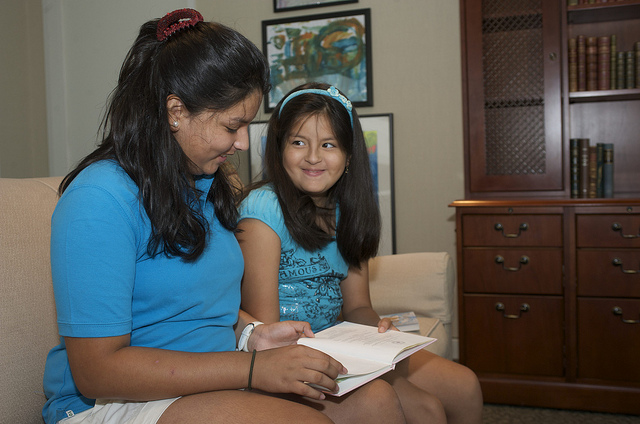“OK, let’s go save these kids.” This was the expression used by a fellow teacher before the school year began. As I heard the expression, I wondered if the remark had any degree of truthfulness. Serving a community that is notorious for its poverty and high crime rate, as is the city of Richmond, CA, can convince any outsider that help is needed. It may seem obvious, but the question remains: do we need an outsider to come do the job of those who already form part of the community in question?
Most of the teachers I have met, those who taught me in high school, and those who I work with today, commute to work. They live in neighboring suburbs, drive or take the Bay Area Rapid Transit system into Richmond, and at the end of the day they drive, or “BART” themselves back to their safe, suburban homes. They eat nonfat plain yogurt for breakfast, snack on carrots and hummus for brunch, and munch on an avocado and shrimp chopped salad for lunch. All of this is perfectly fine, but the problem arises when we look at their students’ lifestyle. Most students don’t live in suburbs, most walk to school, like I sometimes did for a full forty minutes, they don’t eat foods that would cost them money that they struggle to attain in the first place. Teachers simply do not lead lifestyles that resemble their students’, and this is problematic.
Everyone has the right and the liberty to create a lifestyle that is in accordance with the work they put in. Teaching, however, is a career that requires self-imposed limitations. All careers require some form of sacrifice, but teaching is one of the few careers that require a sacrifice for the well-being of other people. There are long hours, comparatively low-pay, out-of-pocket classroom furnishing—but there is also the demand for sacrificing personal comfort. A teacher will never be able to effectively connect with the students they teach, unless they share in their pupils’ lifestyle. This means that teachers must make their way down from the comfortable hills, and enter the valleys and cities, in order to experience the life of a student first-hand.
I listen to students constantly complain about the lack of connection they have with teachers. Usually, the complaints are formulated using expressions like, “my teacher is annoying!” or “they don’t know how to teach!” But, behind the seemingly offensive, and almost tangibly painful remarks, there is a student aching to be taught by someone they can identify with. This is the reason why we must stop outsourcing teachers; we need teachers who are natives of the community they teach. We need Richmond men and women to graduate high school, attend and graduate university, and come back to Richmond in order to reinvigorate those citizens who can no longer perceive the pride and purpose that characterizes them. Richmond must be taught by Richmond.
In regards to my colleague’s remark about “saving these kids,” I respond: perhaps the kids do need a savior, but the savior is a native from Richmond. The teachers who will “save” the kids from Richmond are those who live the life Richmond students live. The savior will live in Richmond like their students, walk to campus like their students, eat chips and burgers like their students. The savior will not come from a suburb, totally oblivious to the daily reality their pupils confront. The savior is here, and they are from Richmond.
(This is a cross post from one of our partner blogs- La Comadre by by Robel Espino)

